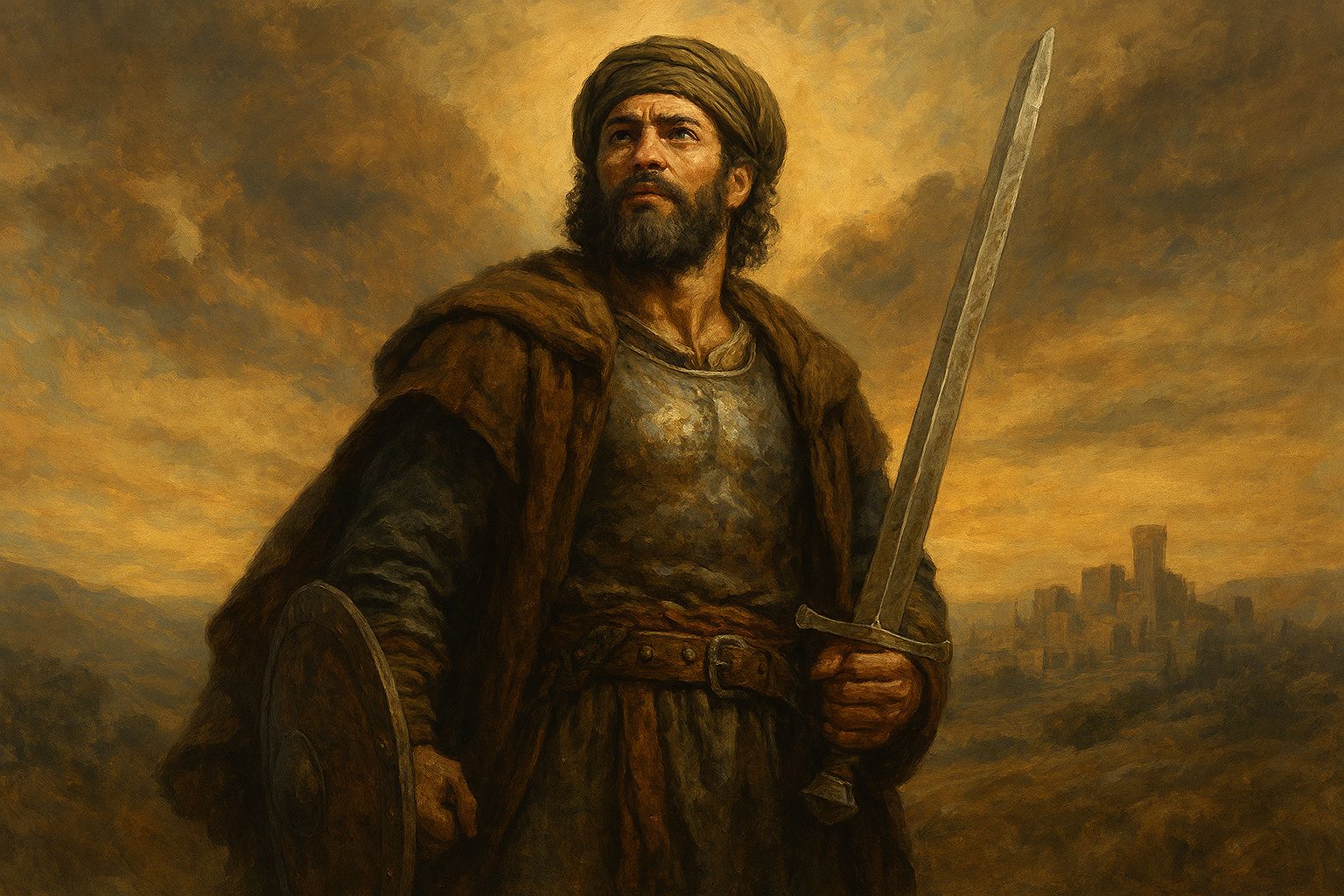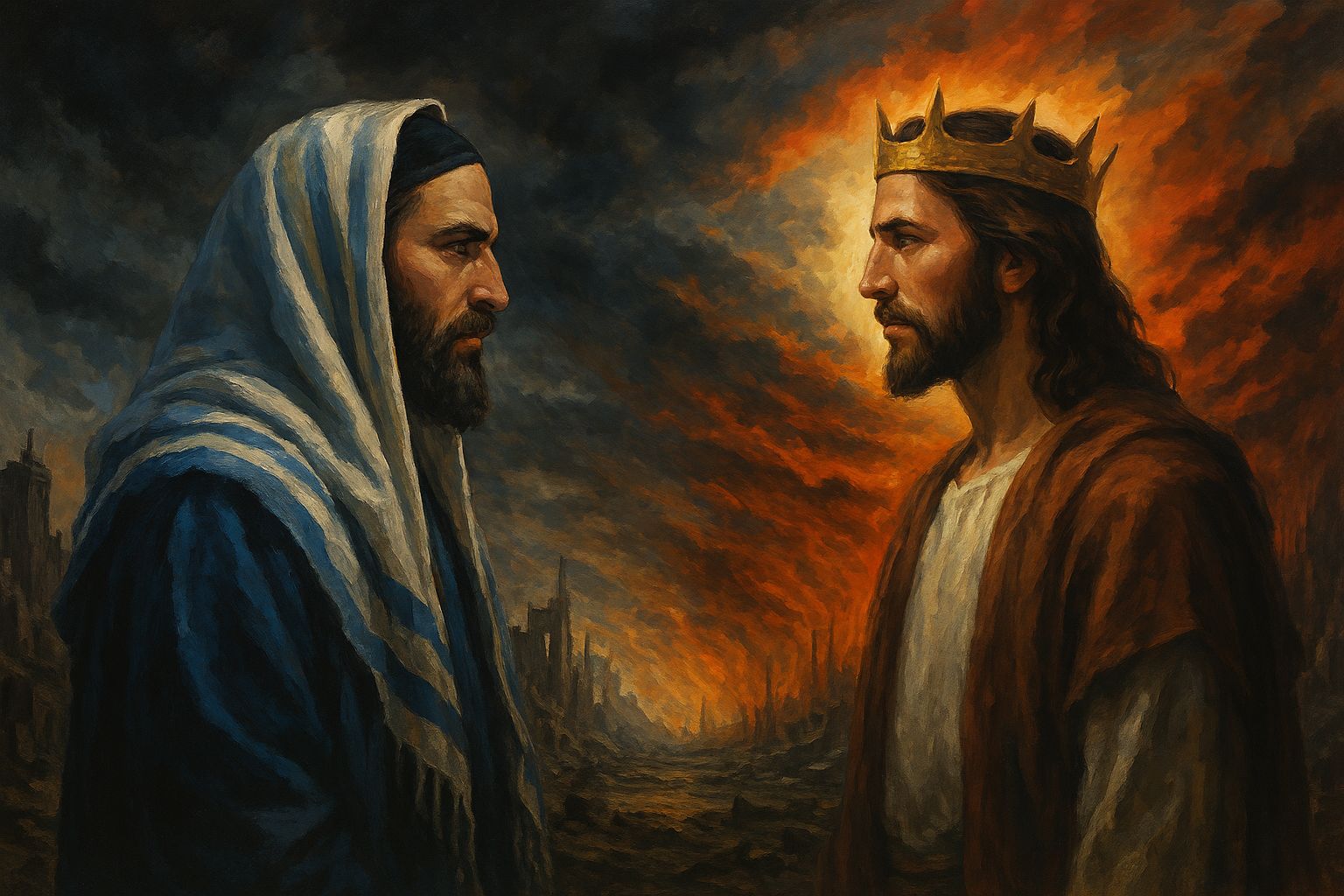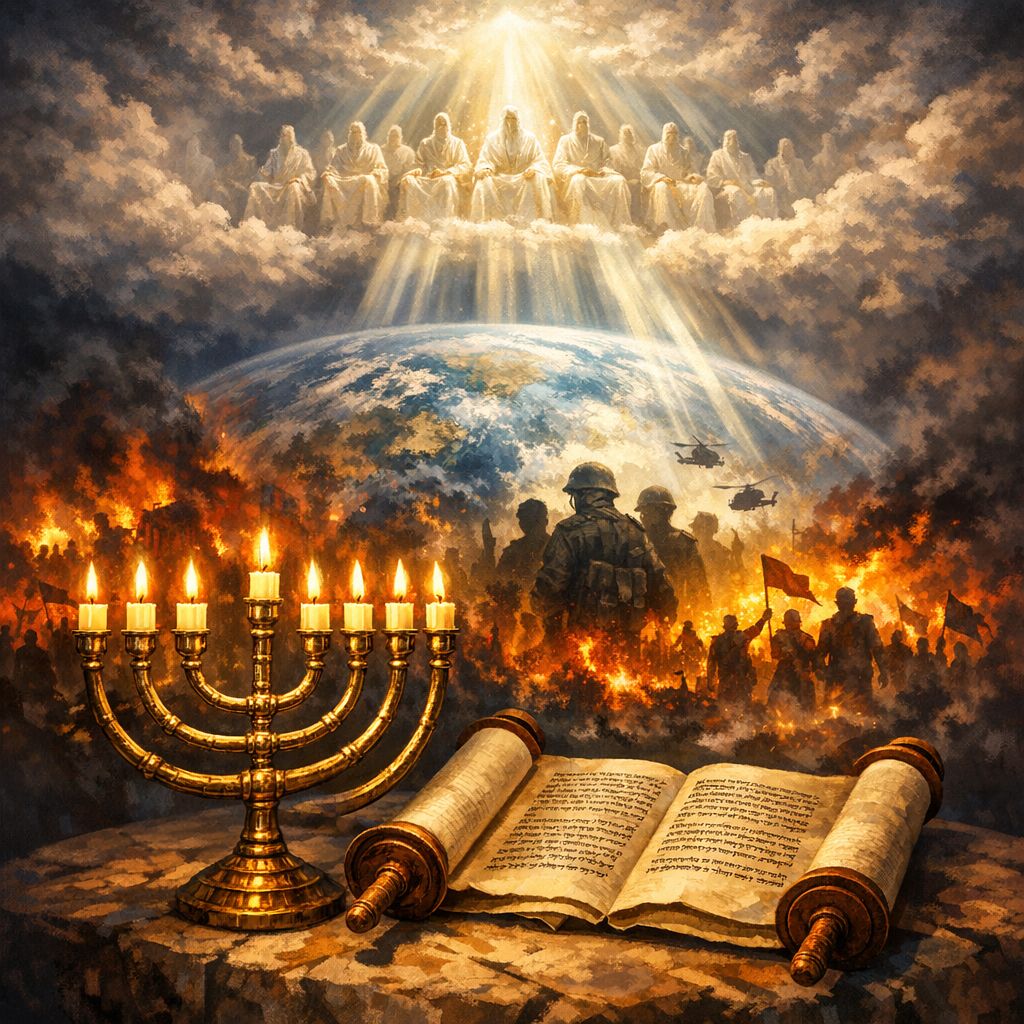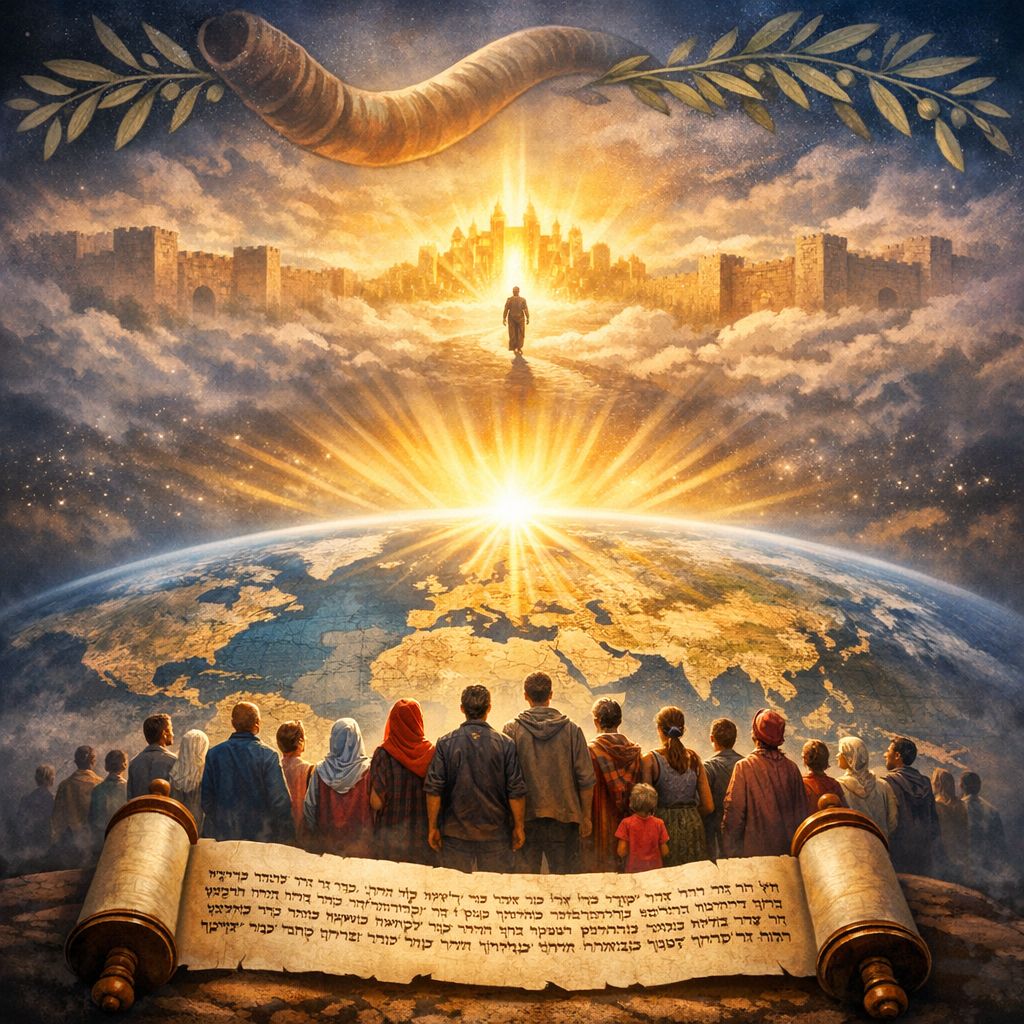Episode Overview We are living in a time of global upheaval, moral inversion, and spiritual confusion. Scripture warned us that such days would come—but it also prepared us for them. In Part 1 of our Spiritual Warfare Series, we lay the foundation by answering a...
Drafted Into a Cosmic War: Defining Spiritual Warfare in a Time of Global Darkness: Part 1 of our Spiritual Warfare Series
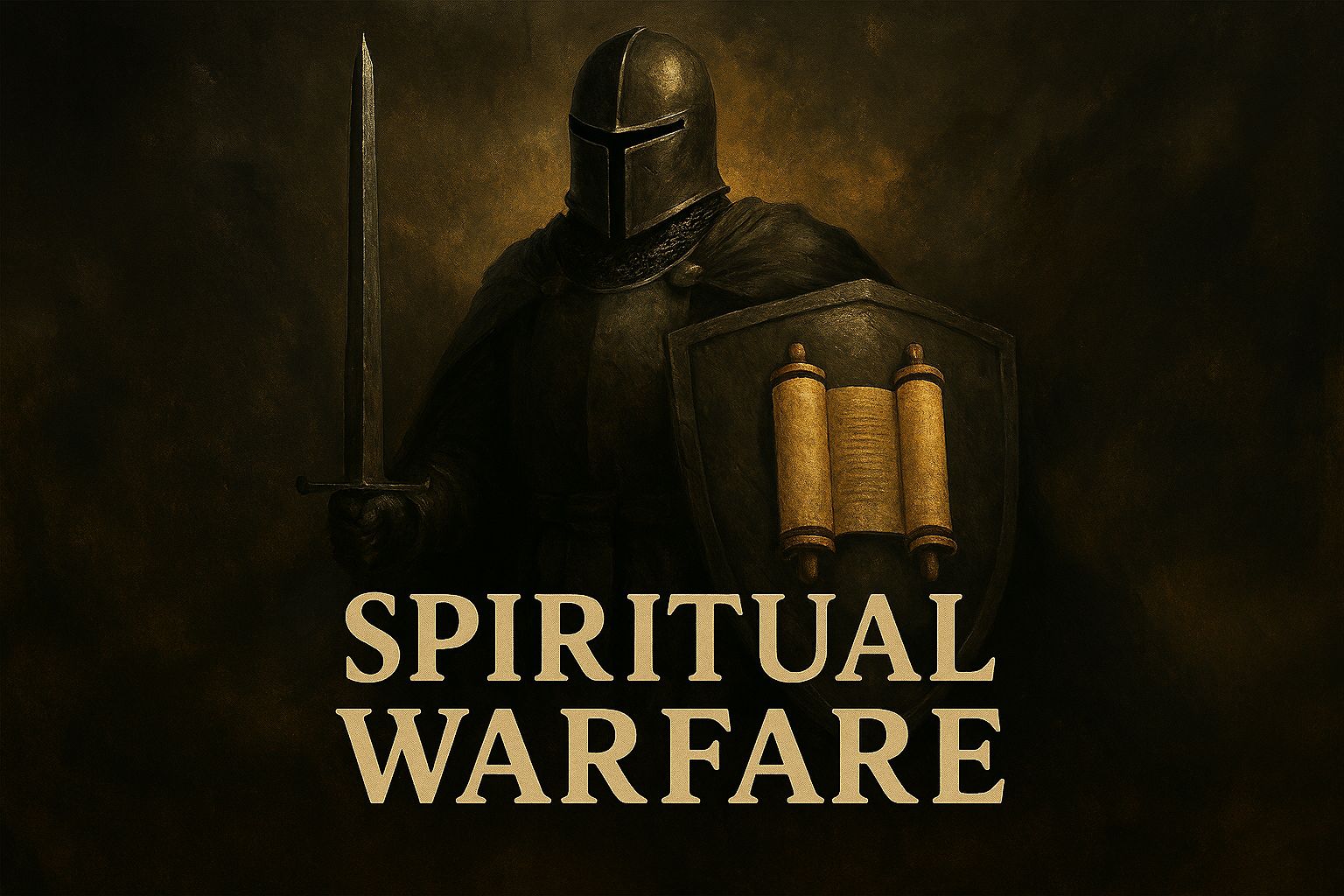
Episode Overview
What This Episode Covers
1️⃣ Why Spiritual Warfare Matters Now
-
Global instability, deception, lawlessness, and moral reversal
-
Wars, rumors of wars, and “birth pangs” foretold by Messiah
-
The increasing pressure on faith, families, and covenant identityKey Scriptures:Matthew 24:3–8; Isaiah 5:20; 2 Timothy 3:1–5; Ecclesiastes 12:13–14
2️⃣ Defining Spiritual Warfare Biblically
-
Why the phrase “spiritual warfare” does not appear in Scripture—yet the reality permeates it
-
Warfare as a multi‑layered conflict in the unseen realm
-
The difference between the visible, temporal world and the invisible, eternal realmKey Scriptures:2 Corinthians 4:18; Job 32:8; Ecclesiastes 3:21
3️⃣ The Unseen Realm and the Real Enemy
-
Why our struggle is not against flesh and blood
-
Thrones, dominions, rulers, and powers created by Elohim—some now in rebellion
-
How worldly systems, temptation, deception, and hasatan himself work togetherKey Scriptures:Colossians 1:16; Ephesians 6:12; 1 Peter 5:8; 2 Corinthians 10:3–5
4️⃣ Spiritual Warfare Throughout the Tanakh and Apostolic Writings
-
Genesis 3:15 – The Protoevangelium: hostility between the seed of the woman and the serpent
-
Exodus 14:14 – YHWH fights for His people
-
Deuteronomy 20:3–4 – Fearlessness because YHWH goes with us
-
1 Samuel 17:45–47 – David vs. Goliath: the battle belongs to YHWH
-
2 Kings 6:16–17 – Elisha and the unseen angelic host
-
Daniel 10:12–13, 20 – Warfare in the heavens affects events on earth
-
Psalm 91 – Protection, refuge, and angelic guardianship
-
Zechariah 4:6 – Victory by YHWH’s Spirit, not human strength
5️⃣ Weapons and Principles of Spiritual Warfare
-
Authority given to the people of YHWH
-
Torah (the Word of Elohim) as a primary weapon
-
Prayer, fasting, unity, praise, obedience, and righteousness
-
Assurance: no weapon formed against YHWH’s people will ultimately prevailKey Scriptures:Matthew 4:1–11; Hebrews 4:12; Isaiah 54:17; Romans 12:21; Ephesians 6:10–20
6️⃣ Why This Series Exists
-
Clarity instead of confusion
-
Identity instead of deception
-
Preparation instead of passivity
📖 Scripture References Cited in This Episode
-
Genesis 3:15
-
Exodus 14:14
-
Deuteronomy 20:3–4
-
Job 32:8
-
Psalm 44:5
-
Psalm 91
-
Psalm 144:1–2
-
Ecclesiastes 3:21; 12:13–14
-
Isaiah 5:20; 41:10–13; 54:17
-
Zechariah 4:6
-
Daniel 10:12–13, 20
-
Matthew 4:1–11; 5:14; 24:3–8
-
Luke 17:20–24; 18:3–8
-
John 9:4; 10:10
-
Romans 12:21; 13:12
-
2 Corinthians 4:18; 10:3–5
-
Ephesians 6:10–20
-
Colossians 1:16
-
Hebrews 4:12
-
1 Peter 5:8
-
2 Timothy 2:3; 3:1–5
📚 Extra‑Biblical Sources Referenced
-
Jonathan Welton, How to See Heaven: Accessing Divine Secrets, Destiny Image, 2013
-
Judith Allen Shelly et al., Called to Care: A Christian Vision for Nursing, IVP Academic, 2021
🔜 What’s Coming Next
-
Part 2: Messianic vs. Denominational views of spiritual warfare
-
Part 3: Laying the groundwork for Ephesians
-
Part 4 and beyond: A verse‑by‑verse exposition of Ephesians 6:10–20 – The Whole Armor of Elohim
Drafted Into a Cosmic War: Defining Spiritual Warfare in a Time of Global Darkness: Part 1 of our Spiritual Warfare Series
The Suffering Warrior: Unveiling Judah’s Mashiyach ben Joseph and the Messianic Mystery – Part 10 of our Melchizedek Series
The Suffering Warrior: Unveiling Judah’s Mashiyach ben Yosef and the Messianic Mystery Overview In this post, Rod explores Judah’s conception of Mashiyach ben Yosef (Messiah son of Joseph), tracing its development through biblical, Rabbinic, and apocalyptic...
“Messiah the Prince: Daniel’s Prophecy, Jewish Tradition, and the Identity of Yeshua” – Part 9 of our Melchizedek Series
Overview In this installment, Rod Thomas explores the Jewish concepts of the Messiah, focusing on the three-messiah framework: Mashiyach Nagid, Mashiyach ben Yosef, and Mashiyach ben David. The discussion delves into Daniel’s prophecy, Jewish tradition, and the...
Beyond Protests: How Prayer and Fasting Topple Evil Regimes – Venezuela-Minnesota-Iran-The Extreme Radical Left Weighing Heavy on my Mind
Episode Overview In this episode of the Messianic Torah Observer, Rod Thomas explores the spiritual dynamics behind the persistence and collapse of evil regimes. Drawing from current events, biblical prophecy, and personal reflection, the discussion centers on how...
Have We Finished the Great Commission — and Triggered the End Times?
Welcome, beloved saints of the Most High! I’m Rod Thomas, and I’m honored to bring you another installment of the Messianic Torah Observer. On this unusually warm Preparation Day here in DFW, I invite you to join me as we tackle a provocative question: Have we truly...
Runway to the Royal Priesthood-How Hebrews Builds the Case for Yeshua as our Melchizedekian High Priest: Part 8 of our Melchizedek Series
Title: Runway to the Royal Priesthood—How Hebrews Builds the Case for Yeshua as Our Melchizedekian High Priest Episode Description: Are you ready to discover the deeper meaning behind Yeshua’s role as our Melchizedekian High Priest? In this powerful episode, Rod...
Israel’s Inextricable Link to our Salvation Part 7-My Thoughts & Reflections on Torah Reading Vayigash-And He (Judah) Approached
Show Notes Title: Israel’s Inextricable Link to Our Salvation—Reflections on Torah Reading Vayigash Host: Rod Thomas, Messianic Torah Observer Date: Preparation Day, Friday, December 26, 2025 Episode Overview In this installment of TMTO, Rod explores the prophetic...
Torah Reading Miketz: Kingdom Character: Emulating Humility, Faith, and Wisdom from Torah to Messiah
This episode of the Messianic Torah Observer, hosted by Rod Thomas, explores the Torah portion Miketz (Genesis 41:1–44:17), focusing on the life of Joseph (Yosef) and drawing prophetic parallels to Yeshua (Jesus). The teaching highlights how both figures exemplify...
Hanukkah Unveiled: The True Meaning, History, and Relevance for Messianic Believers
This episode of TMTO explores the origins, meaning, and relevance of Hanukkah from a Messianic Torah Observer perspective. Rod discusses the biblical and historical foundations of Hanukkah, its connection to the dedication of the altar, and whether modern Messianic...
Thoughts and Reflections on Torah Reading Vayeshev-And He Settled: Lessons from the Life of Joseph Ben Israel
This is Thoughts and Reflections on Torah Reading Vayeshev or And He Settled: Lessons From the Life of Joseph Ben Israel. Our parshah is contained in Genesis 37:1-36, focusing on the life and story of Yosef (Joseph), son of Ya’achov (Jacob), and its prophetic and...

